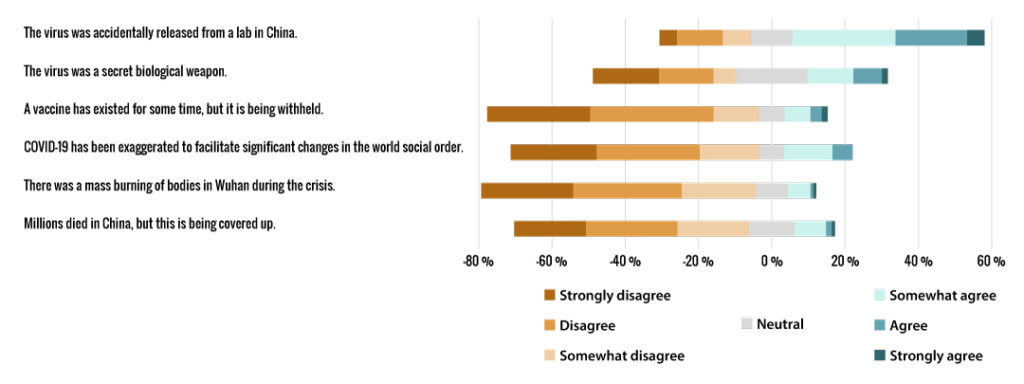Afiq Bin Sulaiman, Bachelor of Environmental Studies student – AY 2020/21
“COVID-19 is a bioweapon” – Sinophobia increases conspiratorial thinking among NUS undergraduates
As many of us have observed, the COVID-19 pandemic has highlighted the issue of belief in conspiracy theories. The vaccines are means to inject us with microchips that will track and control us. Bill Gates is the mastermind who created SARS-CoV-2 to implement a global vaccination programme that will fulfil his evil agenda. These are just two of the prevalent conspiracy theories out there, and evidence suggests that such fake news spreads faster than accurate content – a phenomenon likely related to the echo-chamber effect.
Although engaging in such conspiratorial thinking may seem like a rather innocuous pastime to some, this behaviour (spreading misinformation) has dangerous consequences, such as undermining public-health measures to curb viral transmission.
When Afiq approached me to supervise his Undergraduate Research Opportunity in Environmental Studies project (my first UROPES student), it was through an informal chat about this problem that we realised we shared a burning curiosity about it. Especially about the extent to which belief in conspiracies has manifested in a presumably educated population – NUS undergrads – and the drivers thereof. At the time, noone had asked this question in Asia, though a very recent study (published one week after Afiq submitted his report) included populations in Hong Kong and the Philippines.
Afiq’s mixed-methods study combined an online quantitative survey (preceded by a pilot study) of 132 respondents. They answered open-ended questions about their demographics, degree programmes and beliefs about the virus’ origin. They also answered Likert-scale questions to measure their belief in COVID-19 conspiracies and three hypothesised antecedents: religiosity, Sinophobia and scientific literacy.
Afiq discovered that conspiratorial thinking is rare in this population. These students believe certain, specific conspiracies while rejecting others on the bases of plausibility and the fact that some truths remain unproven. The chart below shows the extent to which students agree or disagree with six specific theories – when viewing it, remember that when Afiq did his study, the vaccination campaign in Singapore had barely begun.
This study also showed that NUS undergrads may be somewhat distinct from other populations whose conspiratorial thinking has been studied. Meaning, their tendency to believe COVID-19 conspiracies is not predicted by most sociological and psychological factors (or at least not the ones he measured). The one exception was Sinophobia. Though anti-Chinese sentiment was not prevalent, the ideational factor of Sinophobia is positively associated with conspiratorial thinking. As such, it seems that NUS, despite its large population of international students, faculty and staff, remains vulnerable to xenophobia and its effect on students’ beliefs about a virus that does not discriminate based on ethnicity.
In his fourth and final year of university, Afiq will conduct his honours research, which will map the spatial distribution of carbon sinks and sources, focusing particularly on Singapore’s urban context such as the highly managed streetscape vegetation and the presence of urban turfgrass.

